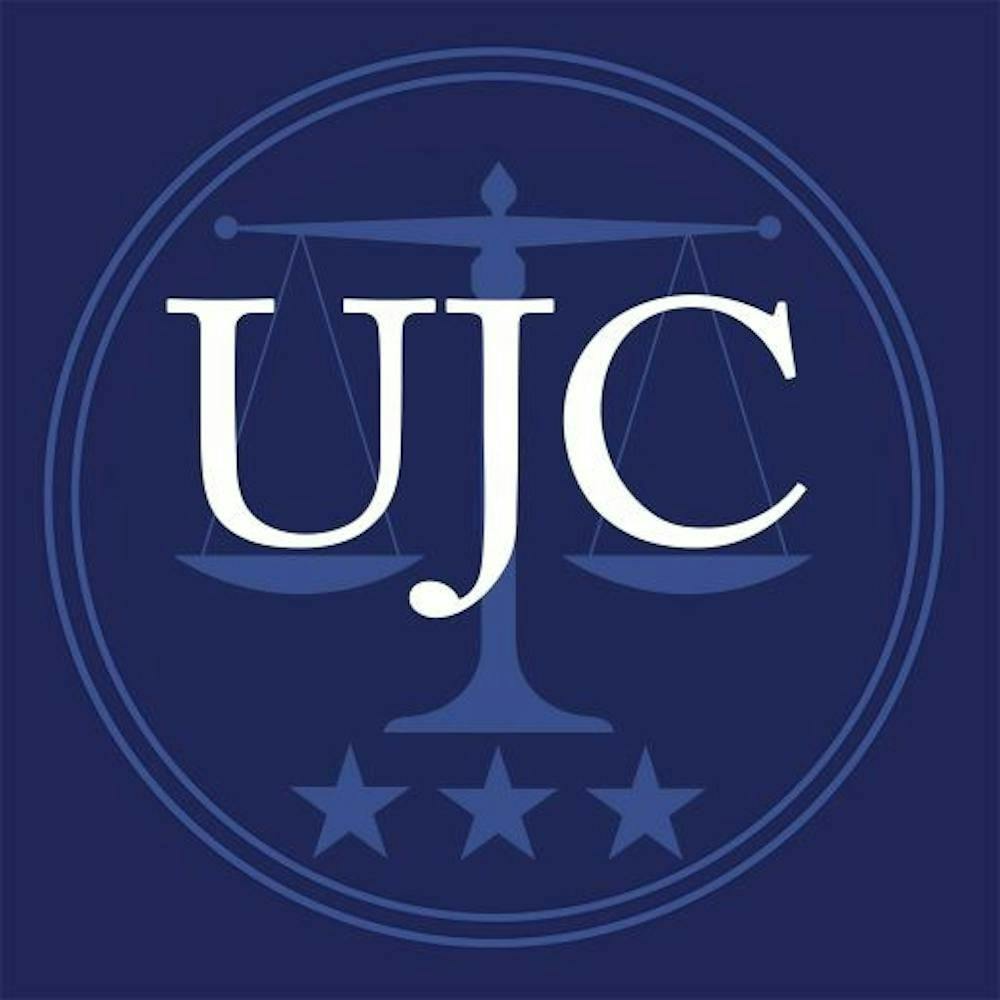This year, The Cavalier Daily Editorial Board endorses five candidates, each of whom are running for College of Arts and Sciences representative for the University Judiciary Committee — third-year Harper Jones, third-year Lisa Kopelnik, second-year Allison McVey, third-year Campbell Coleman and third-year Anna Prillaman. Each candidate demonstrated a commitment to UJC’s foundational values of respect, safety and freedom. Beyond this, all five emphasized a need to increase organizational transparency and a commitment to an ideal of restorative justice that genuinely engages the student body as a whole. We are confident that these candidates will advance innovative solutions to the problems UJC faces.
Jones is currently serving as a senior counselor, a position which has enabled her to gain extensive insight into the intricacies of UJC policies and procedures. She astutely described how UJC does not operate on precedence and explained that this is not a handicap. Rather, by operating without precedence, Jones explained that UJC is able to tailor sanctions to specific circumstances and promote a more restorative sense of justice. She articulated a vision for UJC in which representatives are active members of the community and are focused on rehabilitative, not punitive, solutions. Jones had clear steps to achieve these goals. She cited reflective essays as a key rehabilitative tool and expressed a desire to establish week-long engagement events beyond just election season. Her commitment to engagement with the student body and her wealth of experience give us confidence that Jones is prepared to promote community buy-in in a truly innovative manner.
Kopelnik has served in many capacities at UJC. As the current chair, she focused on recruiting a diverse array of members because of how such diversity allows for a more empathetic system, one that is demographically representative of our community. Her work with UJC thus far is impressive, and her vision for the future is similarly compelling. Kopelnik was keenly and uniquely aware of the threats to freedom that exist on Grounds, including freedom of speech and freedom to be who you are. She believes that as a student self-governance organization dedicated to upholding freedom, UJC will be able to work with different groups and leaders on Grounds to better protect this freedom against future administrative overreach.
McVey, who currently serves as a UJC representative, considers increasing transparency to be one of the top items on UJC’s agenda for the upcoming academic year. Therein, she suggested an anonymous feedback form as a novel way to address concerns about UJC’s presence on Grounds. While Kopelnik seeks to uphold freedom in a novel way, McVey has a unique understanding of safety, especially as it relates to hazing. As chair of the hazing subcommittee, McVey sees the rise in cases featuring Greek Life organizations and Contracted Independent Organizations as a challenge UJC must confront head on. She recognizes many students may only hear about UJC through these cases and believes that public mock trials run by the hazing subcommittee will increase understanding of UJC processes. McVey hopes that interaction with and criticism from the student body will help UJC to fully realize its values of safety, respect and freedom. Through her initiatives, UJC will hopefully become a more transparent system that responds thoughtfully to safety concerns, specifically hazing.
Coleman has been part of UJC for three years, most recently in the role of senior investigator. He, much like McVey and others, underscored that transparency must be a priority for UJC. While he takes clear pride in both his and the committee’s work, he recognizes that there are places that demand improvement. He emphasized the importance of reviewing internal procedures in order to ensure that trials are run with efficiency and empathy. Additionally, Coleman also seeks to improve community outreach and make UJC a more active participant in the University community. He hopes to improve the organization’s partnerships with CIOs and the student body at large. This Editorial Board believes that improved relationships between UJC and other organizations on Grounds will help make UJC more accessible to students.
Prillaman is the current Vice Chair for Sanctions, and transparency has been a focus throughout her career in UJC. Last year, she implemented office hours — which may seem like a simple change, but it allows Prillaman to address problems preemptively and transparently. She believes that safety is the key to achieving respect and freedom, the other values UJC seeks to protect. Prillaman believes that reflective essays play a key role in getting students to actively engage with the entire restorative justice process. For Prillaman, when an offense has been committed, UJC must do more than restore an individual to the community — UJC must also restore the community itself. This is a novel approach to understanding conduct violations, and one which the Editorial Board found to be impressively holistic.
The Editorial Board is confident in each of these candidates’ abilities to help UJC promote safety, respect and freedom on Grounds. All five demonstrated interest in improving institutional transparency — both externally by advocating for educational initiatives aimed at informing the student body and internally with office hours and diversity-oriented recruitment strategies. Moreover, each of these candidates had clearly given serious thought to what restorative justice means. To them, it is not just a phrase to throw around, but rather an active process with which students must engage — and each has creative solutions to promote this engagement. Given their experience, dedication and values, we firmly believe that they will make UJC more diverse, accountable and restorative.
The Cavalier Daily Editorial Board is composed of the Executive Editor, the Editor-in-Chief, the two Opinion Editors, their Senior Associates and an Opinion Columnist. The board can be reached at eb@cavalierdaily.com.







